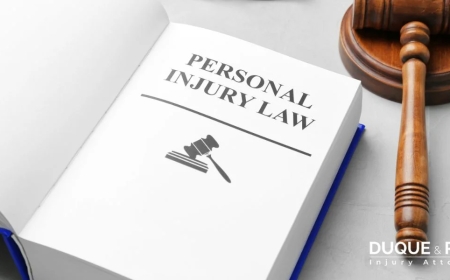Why The Legal Advice of Power of Attorney is Important
Learn why legal advice for a power of attorney is essential to protect your rights, manage assets, and plan your healthcare decisions confidently.

The legal advice from the power of attorney is crucial in understanding the proceedings of court.
Whether it's for the chores of tomorrow or the far future, it's always a good idea to plan ahead. This also applies to decisions about one's health and property, which can be made by putting in place a power of attorney.
We'll talk about the laws and online legal services underlying this potent document and how it operates. Attorneys might utilise this page to educate their prospective clients who wish to construct one.
What is a Power of Attorney
A power of attorney is a legal document in which you, the grantor, choose someone to act as your representative in the event that you are mentally or physically incapable of making decisions for yourself. This designated "attorney" could be any individual (or individuals, if there are two), including close friends or family members, who may or may not be a lawyer.
For example, you were unable to express your choices, whether they are needs or wants, since you were in an accident or became ill. In this situation, the management of your property and/or the course of your medical care will be determined by your power of attorney.
Understanding how powers of attorney operate is crucial to safeguarding your future, regardless of the causedisease, accident, or other events. You and your family will be protected from any unanticipated events in the future thanks to it. Creating last wills and testaments is a crucial component of your overall estate and trust planning.
Anyone Can Have a Power of Attorney
Age has nothing to do with becoming disabled and unable to handle your affairs, according to Suzana Popovic-Montag, Managing Partner at Hull & Hull LLP. She advises people to designate a power of attorney at an early age. "You should start drafting a will and a power of attorney as soon as you reach adulthood because you have the mental and legal capacity to do so at that time."
Prevent Costly Court Actions
Without the online legal services, and a power of attorney for property, a persons spouse, family members, or friends can't handle their financial matters. The only other option is to have a substitute decision-maker, which means going to court to get a guardian appointed. Popovic-Montag says this process can be both costly and take a lot of time.
She says it's always better if people take care of their affairs while they're still able to make decisions and choose someone themselves to act on their behalf.
If they don't, someone will have to go to court and ask a judge to approve them as the right person. This process is slow, expensive, and there's no promise it will work, she explains.
Gives Clear Understanding of the Family
Without a power of attorney for personal care, the family of someone who can't make their own decisions has limited power to make choices on their behalf. However, it allows the person to choose who will make their healthcare decisions, according to Popovic-Montag.
This helps the family know later who will be responsible for important decisions about the incapacitated person's care.
It also reduces the chance of disagreement among family members, especially if they already have bad feelings toward each other.
Types of Power of Attorney
There are various kinds of power of attorney, and the type you need depends on your situation and what you want to achieve. The law also sets rules about your ability to give this power, who can act as your attorney, and how the document should look to be considered valid, and you need to follow these rules as the person giving the power.
There are usually two kinds of powers of attorney related to property. One type is continuing, which means the attorney can make financial decisions for you all the time. The other is non-continuing, which means the attorney can only act for a certain period or for specific tasks.
These powers let your attorney handle things like:
taking care of or selling your house
managing your investments and bank accounts
paying your bills
getting money that is owed to you
and any other financial matters you may have.
For personal care: it lets your attorney make decisions about your personal and health matters, like your:
health care
where you live and general personal care, such as what you wear, what you eat, and the activities you do.
Difference Between the two
Another difference between these two types is that a power of attorney for property can be either continuing or non-continuing. A continuing power of attorney starts working as soon as it is signed by the person giving it, even if that person is still mentally able. However, Popovic-Montag explains that a grantor can choose to make the power of attorney only start working when they are no longer mentally able. This type is called non-continuing.
Final Thoughts
No matter how old you are, it's a good idea to plan by setting up a and taking legal advice from power of attorney. Even though the process might feel a bit scary, the sense of security it gives you and your family is really worth it. Lawyers who specialize in wills, trusts, and estates can help you make one and also help if there are any issues later on. The most important thing is to have the right legal support when you create this document.







































